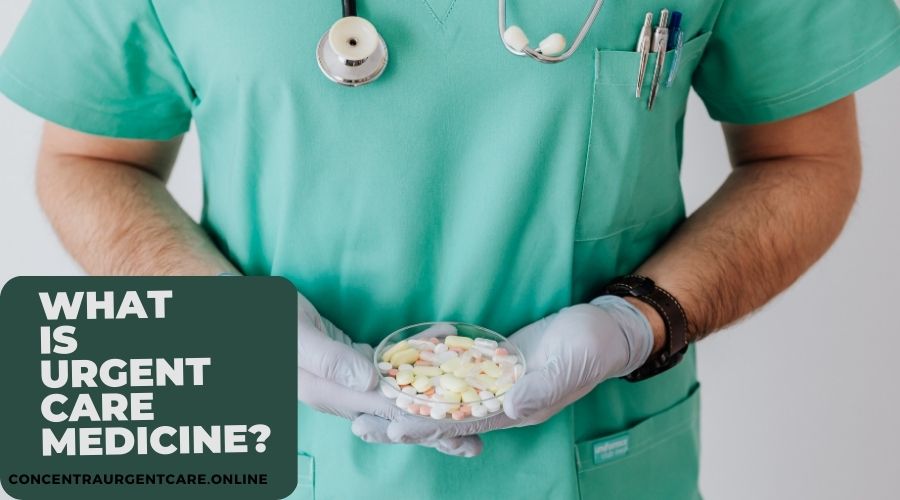What is Urgent Care Medicine?
Urgent care medicine is a type of healthcare service that provides immediate medical attention to patients with acute or sudden illnesses or injuries that are not life-threatening but require prompt medical attention. Urgent care centers are designed to offer a quick and convenient alternative to emergency rooms and primary care offices. They typically provide extended hours, walk-in services, and short wait times, making them a popular option for patients who need medical attention outside of regular business hours.

History of Urgent Care Medicine
Urgent care medicine has its roots in the 1960s and 1970s when the concept of walk-in medical clinics was first introduced. Initially, these clinics were created to provide medical care to patients with minor injuries and illnesses who could not wait for a scheduled appointment with their primary care physician. Over the years, the scope of services offered by urgent care centers has expanded, and today, many centers provide a wide range of diagnostic and treatment services for a variety of non-emergency conditions.
Benefits of Urgent Care Medicine
Convenient and Accessible: Urgent care centers are typically open for extended hours, seven days a week, and offer walk-in services, making it easy for patients to receive prompt medical attention when they need it.
Cost-effective: Urgent care services are often less expensive than emergency room visits and can save patients time and money by avoiding long wait times and high ER costs.
Wide Range of Services: Urgent care centers provide a range of diagnostic and treatment services for non-emergency conditions, including x-rays, lab tests, and medication prescriptions.
Experienced Staff: Urgent care centers are staffed by experienced healthcare professionals who are trained to handle a variety of non-emergency conditions and provide high-quality medical care.
Also Read: Why Are There So Many Emergency Rooms?
Conditions Treated at Urgent Care Centers
Urgent care centers provide medical care for a variety of non-emergency conditions, including:
- Cuts and lacerations
- Sprains and strains
- Fever and flu-like symptoms
- Minor burns
- Allergic reactions
- Respiratory infections
- Stomach pain and vomiting
- Headaches and migraines
How Urgent Care Centers are Different from Emergency Rooms
Urgent care centers and emergency rooms serve different purposes and treat different types of medical conditions. While emergency rooms are equipped to handle life-threatening conditions, such as heart attacks and strokes, urgent care centers are designed to provide prompt medical attention for non-emergency conditions. Emergency rooms typically have longer wait times, and higher costs, and are open 24 hours a day, seven days a week. Urgent care centers, on the other hand, offer extended hours, walk-in services, and shorter wait times, making them a more convenient and cost-effective option for patients with non-emergency conditions.
Also Read: Why Urgent Care is Growing So Fast
FAQs about Urgent Care Medicine
1. What is considered an emergency medical condition?
An emergency medical condition is a serious, potentially life-threatening condition, such as a heart attack, stroke, or severe bleeding.
2. What is considered a non-emergency medical condition?
A non-emergency medical condition is a condition that is not life-threatening but still requires prompt medical attention, such as a sprain, fever, or cut.
3. Can I receive a diagnosis and treatment at an urgent care center?
Yes, many urgent care centers provide diagnostic and treatment services for a wide range of non-emergency conditions. These centers are staffed by experienced healthcare professionals who are trained to diagnose and treat various non-emergency illnesses and injuries. The diagnostic services offered may include x-rays and lab tests, while treatment services may include medication prescriptions and other forms of care, such as wound care or pain management. Urgent care centers are designed to provide patients with prompt, convenient, and effective medical attention for non-emergency conditions.
4. Can I receive medication at an urgent care center?
Yes, many urgent care centers provide medication prescriptions for non-emergency conditions.
5. Is it more expensive to visit an urgent care center instead of my primary care physician?
A: It can be less expensive to visit an urgent care center instead of the emergency room, but the cost may still depend on the specific services provided and your insurance coverage.
Also Read: What’s Driving the Urgent Care Boom?
Conclusion:
Urgent care medicine is a type of healthcare service that provides immediate medical attention to patients with non-emergency conditions. Urgent care centers offer a quick and convenient alternative to emergency rooms and primary care offices, with extended hours, walk-in services, and short wait times.
They provide a range of diagnostic and treatment services for a variety of non-emergency conditions, including cuts, sprains, and fevers, and are staffed by experienced healthcare professionals. Urgent care centers and emergency rooms serve different purposes, and it’s important to know when to seek care at each. When in doubt, always err on the side of caution and seek care at the emergency room for serious or life-threatening conditions.
